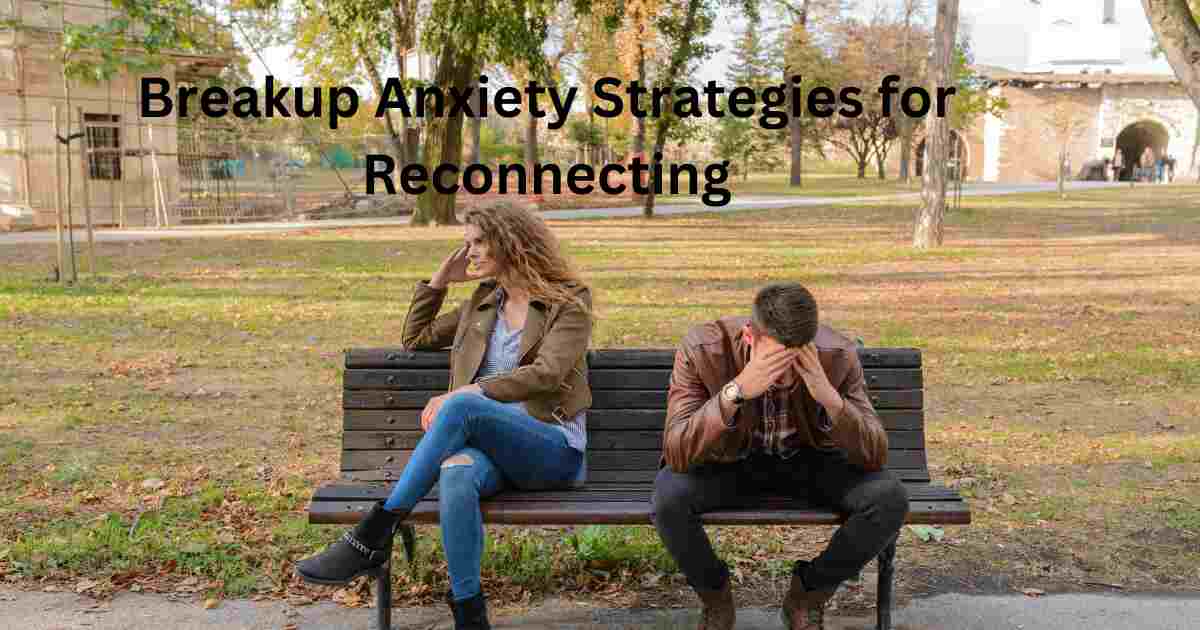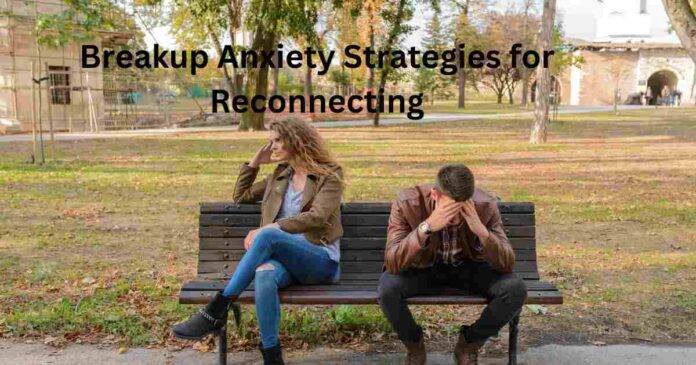You know, breakup anxiety strategies are part of the journey of love and the bond that we share with our partners. They are often each other’s support in the storms of life. However, there are times when the physical distance between partners becomes a formidable and complex challenge, giving rise to a lot of feelings of restlessness and anxiety. If you find separation from your partner unbearably painful, you should know that you are not alone. This article explores the roots of separation anxiety in relationships and offers practical strategies for bridging the emotional gap.

Table of Contents
ToggleIdentifying Relationship Separation Anxiety: Signs and Symptoms
Breakup anxiety is defined as a distinct feeling of intense distress and panic that you face when separation from your romantic partner occurs, is likely, or is imminent. . This goes beyond the normal desire for companionship. And this may include deep fears about surviving without them or concerns for their well-being.
Specific symptoms of separation anxiety in relationships include:
- Frequent worries about your partner experiencing harm or separation.
- Worries about potential harm prevent you from being together with them.
- Anxiety and discomfort when traveling without your partner.
- Distress upon their departure.
- There is a constant need to know their whereabouts and anticipated return time.
- Difficulty sleeping when apart from them.
- Challenges concentrating at work or school due to persistent thoughts about their safety.
- Overwhelming fears of abandonment or relationship termination.
- General restlessness and irritability.
Physical symptoms, such as stomach distress, headaches, or sleep problems, may also accompany the emotional anxiety during periods of separation or when anticipating being apart from your partner.
Understanding the Roots of Relationship Separation Anxiety
There are many different factors that contribute to the development of separation anxiety in your relationship. And discovering its origins plays an important role in addressing and preventing this emotional challenge. Or may provide insight
Childhood Attachment Issues:
Attachment, a psychological concept, refers to the bond formed between individuals and their childhood caregivers. A secure attachment typically stems from a trusting relationship with parents or guardians. In contrast, inconsistent love and support can lead to insecure attachment, particularly anxious attachment. Individuals with an anxious attachment style may worry about partner abandonment, seek constant reassurance, struggle with solitude, and heavily depend on their partner to fulfill their needs.
Life Stress or Unwelcome Changes:
Significant life changes or stressors, such as the loss of a loved one or exposure to a traumatic event, can trigger separation anxiety. Grieving a loss may prompt contemplation of mortality, intensifying anxiety about being apart from a partner. Similarly, experiencing a traumatic event with a partner can lead to persistent fears during separations. Life changes, like emerging from pandemic lockdowns, adjusting to newfound independence, or leaving home for the first time, can also contribute to separation anxiety.
Relationship Factors:
- Individuals with a history of relationship anxiety, rejection, or abandonment may find separation from their partner more challenging. Cultural influences can amplify separation anxiety, especially if autonomy is viewed as uncommon or unsafe. Positive aspects of a close relationship, coupled with sudden changes in routine or time spent together, can trigger anxiety during separations.
Codependent relationships:
- Although it is not classified as a mental health condition, codependency plays a role in emotional distress, including separation anxiety.
In codependent relationships, individuals tend to prioritize their partner’s needs first, sometimes to the detriment of their own well-being. The interweaving of identities in codependency can make it challenging for individuals to function independently, which can lead to anxiety when separated from their partner.
- Understanding the main drivers of separation anxiety is a vital stage in creating compelling systems for controlling and defeating this difficult close-to-home insight.
Understanding Separation Anxiety
Separation anxiety in relationships is a common emotional response that can arise due to various reasons, such as work commitments, travel, or other life circumstances. You need to recognize that feeling uncomfortable when separated from your partner is a natural human emotion. But it is very important to address it constructively to maintain a healthy relationship.
Communication is key for Breakup Anxiety Strategies:
Effective communication, marked by openness and honesty, lays the foundation for a thriving relationship. If you find the distance challenging, share your feelings with your partner. Examine your interests, express your feelings, and work together to track down successful ways of remaining associated. Knowing that you are on the same page emotionally can alleviate some of the stress associated with separation.
Establishing Routine Check-Ins
Create a routine for regular check-ins with your partner. Whether it’s a daily phone call, video chat, or a simple text exchange, having a consistent communication schedule helps maintain a sense of connection. Knowing that you have designated times to connect can provide reassurance and alleviate the anxiety associated with being apart.
Utilizing Technology for Breakup Anxiety Strategies
- In today’s digital age, science and technology are so advanced that they provide us many ways to stay connected with them. Take advantage of messaging and social media platforms on the Internet and talk to your partner over video calls to share your daily experiences with each other. And sharing photos and videos with each other and even setting up virtual dates can create a sense of your presence. And this will help in creating a feeling of distance from your partner.
Engaging in shared activities
Despite the physical separation, find ways to engage in shared activities. Watch a movie or TV show together simultaneously, read the same book, or play online games. Creating shared experiences, even from a distance, fosters a sense of togetherness and helps overcome the challenges of separation.
Focusing on Individual Growth
While maintaining a strong connection is vital, it’s equally important to focus on individual growth. Use the time apart to pursue personal interests, hobbies, or career goals. Embracing personal development not only strengthens your sense of self but also enriches the relationship when you reunite.
Planning Future Reunions
Having a future reunion to look forward to can significantly ease the emotional burden of separation. Plan visits or discuss future shared experiences to create a sense of anticipation. Knowing that the distance is temporary and that there are plans for future togetherness can provide emotional comfort.
Incorporating graduated exposure into your routine
Introduction to Graduated Exposure: Graduated exposure is recommended to overcome anxiety about sleeping alone when facing an extended period away from your partner.
Current Relationship Context: Over the past 2 years, you haven’t spent more than a night or two away from your partner.
Upcoming Challenge: Your partner will be on a week-long business trip next month, posing a new and more extended separation.
Botnick’s Recommendations: Start several days ahead of time to gradually adjust to the upcoming change.
Progressive Steps:
- Begin by going to bed before your partner gets home, deviating from your usual routine of waiting up for them.
- Move on to sleeping in the guest bedroom, providing a step towards sleeping alone.
- While in the guest bedroom, your partner promises to call at your bedtime, offering a sense of connection.
- By the third night, you feel comfortable enough to fall asleep after receiving a goodnight text.
Purpose of Graduated Exposure: The purpose is to ease anxiety and increase comfort levels with sleeping alone during the upcoming business trip.
Outcome:
- The gradual approach helps diminish anxiety, allowing you to peacefully fall asleep even in your partner’s absence.
- This structured approach aims to provide a clear understanding of the steps involved in implementing graduated exposure to address separation anxiety around sleeping alone.
Conclusion of Breakup Anxiety Strategies;
Coping with those challenges of divorcing your partner requires open conversation, proactive relationship repair, and sharing of activities. You can not only make it throughout a long distance relationship, but also thrive in it if you use these tactics and creatively handle your separation anxiety. Recall that the secret is to use your partner’s physical the distance as a chance for emotional development and to deepen your relationship.
FAQs: Breakup Anxiety: Strategies for Reconnecting
- How common is separation anxiety in relationships?
- Separation anxiety is a prevalent emotional response in relationships, affecting individuals to varying degrees.
- Can technology truly bridge the emotional gap in long-distance relationships?
- Yes, technology provides effective tools for staying connected, fostering a sense of presence despite physical distance.
- What role does childhood attachment play in separation anxiety?
- Childhood attachment issues can contribute to insecure attachment styles, intensifying separation anxiety in adulthood.
- Is separation anxiety a sign of an unhealthy relationship?
- Not necessarily. It’s a common emotion, but how you address and manage it determines its impact on the relationship.
- How can individuals balance independence in a relationship to alleviate separation anxiety?
- Balancing independence involves nurturing personal growth, maintaining a sense of self, and ensuring healthy boundaries.





Its like you read my mind You appear to know so much about this like you wrote the book in it or something I think that you can do with a few pics to drive the message home a little bit but instead of that this is excellent blog A fantastic read Ill certainly be back
Thank you for visiting again